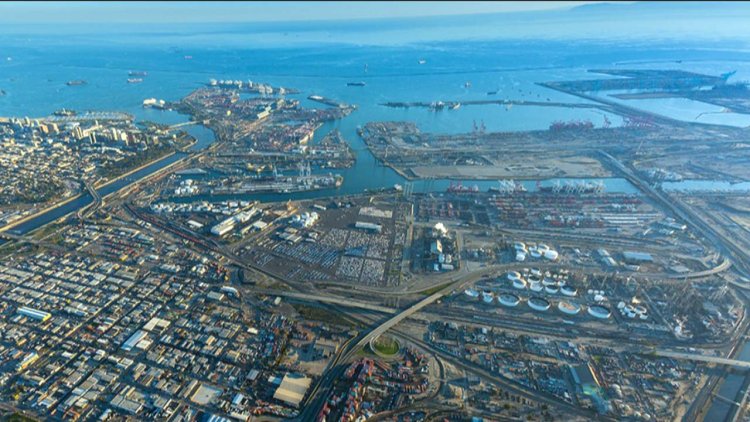Port of Long Beach receives $52.3 million grant for rail project
Pier B On-Dock Rail Facility will make cargo movement cleaner, more efficient

The Port of Long Beach has been awarded a $52.3 million grant from the U.S. Department of Transportation's Maritime Administration to help fund development of the "Pier B On-Dock Rail Support Facility," which will enable the nation's second-largest seaport to move more cargo by train, improving efficiency and lessening environmental impacts.
The planned project is the centerpiece of the Port of Long Beach's approximately $1 billion rail capital improvement program. Moving cargo by on-dock rail – directly transferring containers to and from marine terminals by train – is cleaner and more efficient, as it reduces truck traffic. No cargo trucks will visit the facility. Instead, smaller train segments will be brought to the facility and joined together into a full-sized train.
Port of Long Beach Executive Director Mario Cordero said:
"This is great news to hear at the end of what will be our busiest year ever. We appreciate the U.S. Department of Transportation's support for this important project. It will help to move cargo more efficiently through the Port, getting needed products and goods to homes and businesses across America faster."
MARAD's Port Infrastructure Development Program is providing the grant. The funding from the program is specifically designed for capital improvement projects at U.S. seaports.
Harbor Commission President Steven Neal said:
"Our federal partners have recognized the need to modernize the Port and support our push toward 24/7 operations. These investments have benefits from coast to coast since cargo from the Port of Long Beach reaches every congressional district."
Pier B On-Dock Rail Support Facility construction is set to begin in 2023. The first arrival, departure and storage tracks are expected to be completed in 2025, with additional tracks coming online in 2030, followed by project completion in 2032. View the project fact sheet and more information at the project page.



























